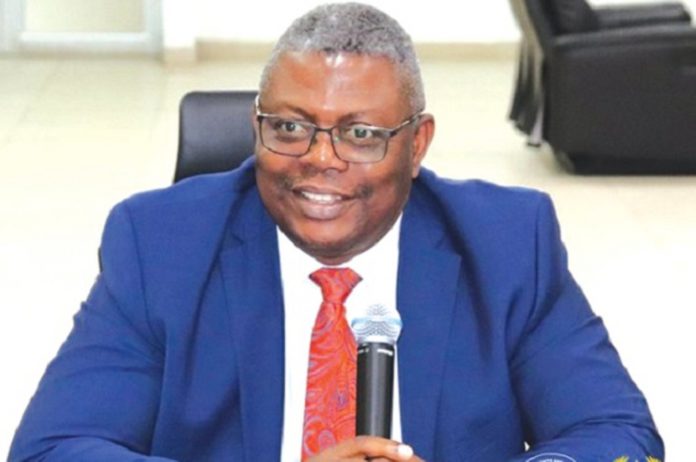Ghana has received support from the United Nations Office on Drugs and Crime (UNODC) to evaluate the National Anti-Corruption Action Plan (NACAP).
The bipartisan plan, adopted by Parliament in 2014 to help fight corruption, will be 10 years next year.
The UNODC is the United Nations agency charged with overseeing the implementation of the UN Convention Against Corruption and will provide technical support in the evaluation as an independent international organisation.
The Ghana Statistical Service (GSS) is a partner in the effort and the consultant on the ground.
The Office of the Chief of Staff has also lent its full support to the evaluation and the resultant NACAP for the country.
An online meeting was held by the partners last Tuesday to agree on the timelines for the evaluation.
NACAP 2
A Deputy Commissioner of Anti-Corruption and Public Education of the Commission on Human Rights and Administrative Justice (CHRAJ), Rev. Richard Quayson, said in an interview with the Daily Graphic that the proposed period for the evaluation would be from October this year to June next year.
He added that the evaluation would result in a subsequent plan for NACAP Two.
The thrust of the follow-up plan for NACAP Two will be ‘ownership’, that is, for all citizens to own the document and work in tandem with institutions and duty bearers to stamp out corruption.
Gaps
Some of the gaps identified in the implementation of NACAP One, which runs from 2014 to 2024, were the lack of commitment by state institutions and other partners, Rev. Quayson said.
For instance, most public institutions were not committed to putting in place a mechanism to prevent corruption, he added.
Rev. Quayson maintained that state institutions lacked the understanding of the key measures to establish an institution to reduce the likelihood of corruption.
Additionally, a NACAP mechanism for institutions to ensure that they budgeted specifically for efforts led by they themselves to stem the vice was not followed or adhered to.
Reporting on efforts and programmes on such institutional mechanisms to stop corruption were also poor, he said.
“A corruption risk assessment for two public institutions that we were to undertake at the Ghana Health Service (GHS) and the Ministries of Fisheries and Aquaculture Development (MoFAD) under NACAP has not been completed,” Rev. Quayson said.
He said the partners were “just not interested,” adding, “we have learnt from the gaps and are now gearing up to make the follow-up action plan better by engaging Ghanaians for the ownership of the plan so that all will be on board.”
Rev. Quayson appealed to institutions, the public and civil services; the private sector and all citizens to support the effort by sharing their views on the implementation of NACAP, if called upon.
He said when NACAP was being developed, extensive consultations were held across the country with visitations to offices in regional and district capitals to ensure that NACAP had a national character.
“We need an honest professional evaluation.
Thus, the UN body is providing us with that technical support with the GSS as well”.
“What we would require from citizens and all stakeholders is that this is a programme we have put together as a country; we have come to evaluating it, some of the successes, and the gaps too, which are lessons as we move into the second phase to prepare another programme to control corruption in Ghana.
“We must all participate in the exercise by being forthright when contacted to speak on it, or provide any information about it. It is a national exercise,” he said.
Rev. Quayson added that again, there would be extensive consultations with Ghanaians, and the expectation was for all to be involved as a responsibility to build the country, protect it and make it a comfortable and hopeful place for posterity by fighting the vice in society.
Context
Between 2011 and 2014, following the prioritisation on the fight against corruption by the government in the GSGDA I, CHRAJ led stakeholder group meetings of officials of government, local authorities, the private sector and civil society organisations to develop NACAP as the national strategy for combating corruption in the country.
The document was adopted unanimously by Parliament on July 3, 2014 as the blueprint for fighting corruption in the country over the next 10 years, with implementation starting in 2015.
Under the NACAP, the Commission was required to coordinate the implementation of the plan, monitor its implementation; intensify public education on it and corruption, and assist with other stakeholders to improve Ghana’s performance on the corruption index; as well as assisting Parliament to finalise the Conduct of Public Officers Bill.
ALSO READ:

